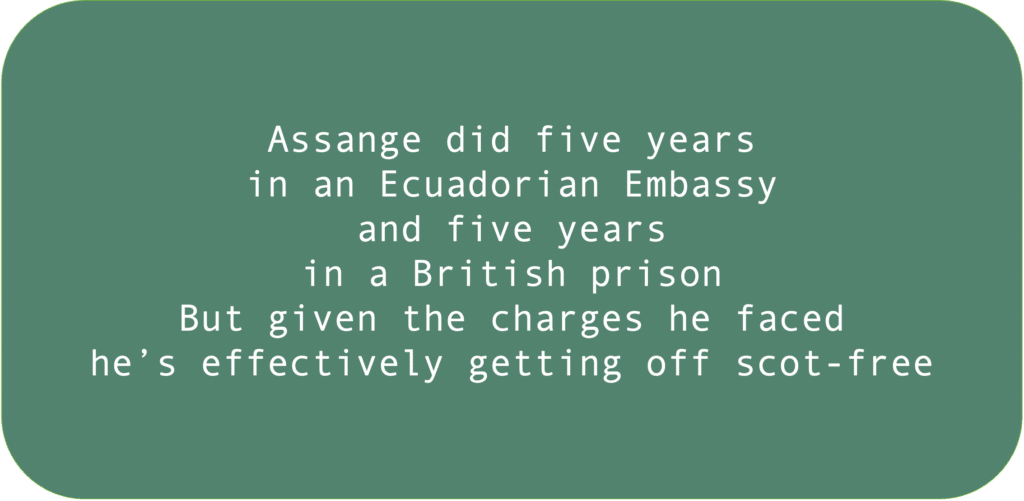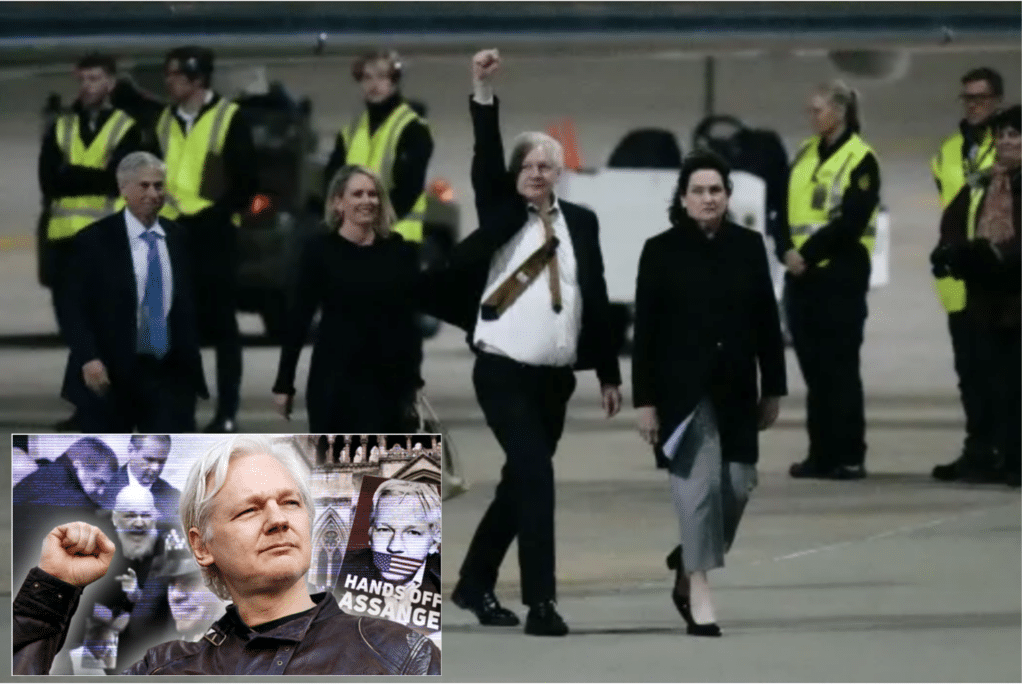
Plea deal for bail-jumping Assange
Finally, after over a decade of high drama, WikiLeaks founder Julian Assange faced justice. In a courtroom far, far away — in Saipan, of all places — he pleaded guilty to one felony charge of violating the Espionage Act.
According to a plea deal with the US government, the court sentenced him to time served. He then walked out a free man. Talk about an anticlimax!
A victory for free speech? More like a free pass
I have repeatedly denounced Assange as a self-promoting Pied Piper of free-speech hacktivists. So, I reacted with an eye roll when his lawyer hailed his release as a “huge win for free speech.” After all, this means that “justice” is the world’s most notorious fugitive gaming the world’s foremost criminal justice systems.
Lest we forget, the US initially filed 17 felony counts of espionage against Assange. They related to the military secrets Army intelligence analyst “Chelsea” Manning stole for him to publish, and to the well-known hackers like Edward Snowden, whom Assange recruited to access other military secrets.
Not to mention the credible charges of serial rape that spooked this fiend to jump bail. A British court ruled in 2011 that the UK must extradite Assange to Sweden first to face justice on those rape charges. Instead, in 2012, he absconded to the Ecuadorian Embassy in London. Thus began the international legal saga that ended in Saipan today.
Extradition: a paper tiger
A timeline of his legal hijinks reads like a Hollywood script. It includes the statute of limitations forcing Sweden to drop its attempt to prosecute Assange for rape in November 2019.
Remarkably, mere months earlier, in April 2019, Ecuador revoked Assange’s asylum. It accused him of using its Embassy to continue his WikiLeaks mischief, including against his indulging host, Ecuador. And so, after seven years of protecting him in a diplomatic cage, Ecuador handed Assange over to the UK on a silver platter.
Except that, even while in British custody over the past five years, he played the UK legal system to avoid extradition to the US. Comity between the US and the UK proved no match for Assange’s perfidy.
Understandably, the US thought it had a much better chance of extraditing Assange from a British prison than from the Ecuadorian Embassy. That’s why it filed a superseding indictment in 2019, requesting his extradition, to no avail.

Frankly, this case has rendered the extradition treaty between the US and the UK utterly meaningless. After all, this craven, bail-jumping, treasonous SOB avoided extradition to the US. And he did so based solely on the specious claim that the US might torture him the way it tortured the innocent people featured in his WikiLeaks disclosures.
The US government bent over backward to assure the UK, its “special” ally, that it would treat Assange fairly. The US even promised it would spare him the death penalty if convicted. But none of it mattered.
And so, Assange ended up spending more time in a UK jail fleeing justice than he might’ve spent in a US prison if he had the balls Manning showed to face justice.
Justice delayed was justice denied
Assange has made a mockery of the US and UK criminal justice systems. He waited out the statute of limitations on those rape charges in Sweden. Therefore, his victims probably hoped he’d still face justice on those espionage charges in the US. Instead, with this plea, he walked free.
It’s a bitter pill to swallow for anyone who thought he would eventually face justice. And it only adds insult to this injustice that Assange looked so jovial and rotund. He has to be the only person in history to spend five years in prison and come out looking like a gourmand who’d been living high on the hog.
This is not a win for free speech. It’s a free pass for those with the right connections and enough patience to game the justice system. So, next time someone praises the unwavering justice in the US or UK, remind them of this farce.